History of Silicon Valley and Venture Capital

If any atom boma would hit USA, using internet , the government could contact at least.
So, this was one of the priority that time.
So, it was part of USA Government Military Research and most tools we use now is part of that too.
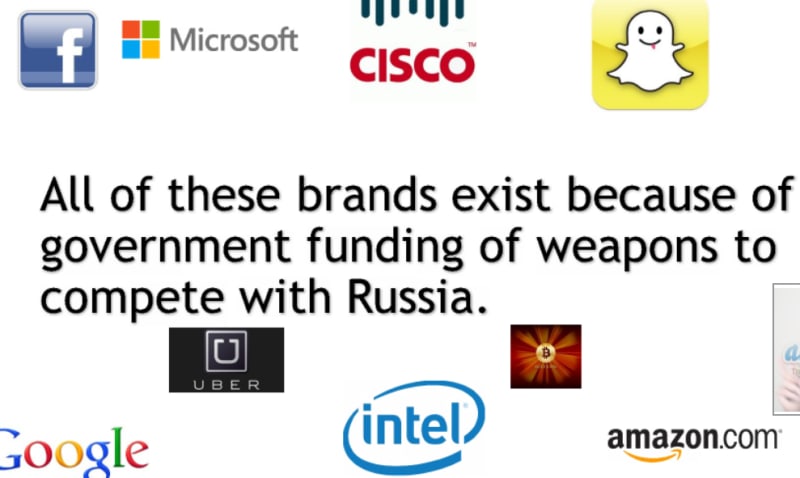
But all these brands only exist because of government
funding of weapons research to compete with Russia And there's big push-back as well on this
America was absolutely terrified of Russia, and Russian military might, and so what happened was America invested in weapons research, which led to the invention of many technologies.
I'll give you some more examples,'cause this really is interesting.
GPS, which we all use in our cell phones for when we use map navigation, was created from guided missile research.
The database where all information is stored exists only because of the CIA's project Oracle, which was Oracle's first customer in the 1970s

The microchip was actually financed by NASA so that NASA could put the first person on the moon before the Russians could.
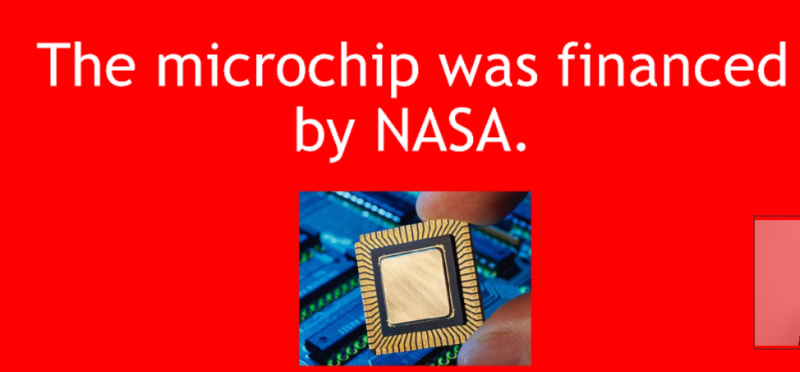
And Palantir, which is the largest employer right now in Palo Alto, even larger than Facebook, Palantir was financed by the CIA's venture capital division, and for those of you that haven't heard of Palantir, it's this amazing software company here in the Bay area that is solving the world's biggest problems. In fact, the Obama administration would not have found Osama bin Laden if it weren't for Palantir software. So it's artificial intelligence based software that solves the world's biggest problems, founded here in the Bay Area because of government research.
So, the Cold War and competition to compete with Russia is one of the reasons that many great technologies exist, so anyway, a little bit of background. So that's enough about war.
Then the peace movement, racial discrimination reduction and many movement came up.
And so, the richest family in America was the Rockefellers. As you know, they owned Exxon, right?
They had a VC division called Venrock, and Venrock invested in a company in the '60s called Fairchild Semiconductor. And the reason they did was because Sputnik, or the Russian satellite, beat America to space, and so America were brokenhearted during the early 1960s.
And so, the Kennedy administration decided to create NASA, which is awesome, and then NASA basically wanted to get the first person on the moon before the Russians did. It was a national pride issue. And they couldn't do it, because they couldn't fit 100,000 little transistors or chips into the fuselage or top part of a rocket. And so, what happened was NASA financed this company called Fairchild, and Fairchild figured it out.
Fairchild got too big,therefore they couldn't innovate anymore, which was tragic, right? And so, they became bureaucratic and many people quit. And many people quit and a lot of Fairchildren (laughs) companies were born,
A couple examples of those chip companies include AMD, NVIDIA, and of course Intel. All those companies came out of Fairchild, right, and so the semiconductor sector was very vibrant in the Bay Area, and the hardware sector kicked ass with companies like HP, and then software around that like Oracle and all these other great firms, and then the internet sector: Google, Facebook, et cetera.
You get it!!
Because if you're an executive at a large company and the founder leaves, the founder wanted to change the world. The rest of the executives just care about climbing the corporate ladder, and politics sets in. And so, these executives climb the ladder. All they care about is trying to get to the top because they get paid more. And the second they try to innovate or step out of line to innovate, if they're not successful, they're done, man.
They're not climbing the corporate ladder anymore. And if they are successful, they're not gonna get paid anyway.
Why?
Cause nobody wants to disrupt the whole corporate pay structure in a big bureaucracy with the founders no longer there. So, the incentive is to leave, start a company, and get funded by high net worth investors, angel investors, seed investors, or venture capitalists.
And in the internet space here in the Valley, the PayPal Mafia runs the Valley today. Hey, what does that mean, Mitul?
Well, PayPal is the most important company to go public in the past 20 years.
Yeah, controversial, I know. More important than Google, more important than Facebook, more important than any of those other companies, because PayPal went public and was the first successful IPO after 9/11. And then more importantly, what happened was a lot
of amazing executives came out of PayPal, and they came out of PayPal and started their own companies.
I'll give you examples.
The founder of LinkedIn worked at PayPal. His name is Reid Hoffman.
The founder of Tesla and SpaceX worked at LinkedIn, or pardon me, worked at PayPal. Of course, he's Elon Musk.
The founder of Yelp came from there. The founder of YouTube came from PayPal, et cetera. So, we call that the PayPal Mafia.
I mention that story because I wanted to reinforce the importance of betting on a strong management team that's had a past exit, okay. And the PayPal Mafia, they had a fantastic exit, and they've been incredibly successful. And so, many other companies that I haven't even talked about came out of PayPal, including Clarium.
Peter Thiel, of course, runs Clarium. He's probably one of the best investors on the planet. And other firms like Yammer, et cetera. And so, venture capital firms love backing the same executives again, because the probability again of you making money by investing in somebody that's already been successful and has already had exits is higher than those that have not, okay. And so, basically the top venture capital firms get all of the great deals.
It's just how it works. The top 10 firms or so are the most relevant, and it's hard to compete.

Other companies include Sequoia.
So, Sequoia is incredible. It's the best venture capital firm here in the Bay Area. And check this next slide out. They really emphasize the founders of these companies and not the underlying companies as much.
Most venture capital in America is in the Bay Area. Now, the sector is extraordinarily cyclical. You tend to only get good exits every 10 years or so.
And so, I mentioned before how a lot of engineers and founders in the Valley are born overseas.
In fact, 60% of engineers in the Valley are born overseas and they come here. And there's a whole notion of if you wanna be an actor, move to Hollywood or Bollywood, and if you wanna be working in technology, move to whatever. And I'm not saying Silicon Valley is the only place in the world where technology companies can prosper. Certainly not the case. But it's interesting to study the environment.
What made them successful here?
So, a lot of dreamers come here. A lot of dreampreneurs. I love it.
There's really a sense of optimism and there's no limits to what you can accomplish here in the Bay Area. And it all started up because of war and peace and the hippie movement, and that took 50 years to develop. And so, other regions of the world that try to develop a commencer infrastructure, you can't do it overnight.
"Be fearful when others are greedy "and greedy when others are fearful." And basically all that means is buy low, sell high, (laughs) that sort of thing. So, there's a reason why they call him the Sage of Omaha. You wanna be a contrarian when it comes to investing always.
So, let's move on to talk about what kind of venture capital firm should you target if you're trying to raise money. Well, you wanna know their stage focus, right? If they're early stage, meaning A or B, and you're an earlier stage company, approach them.
If the firm is later stage, like C or D or sometimes E, late stage, then approach them. Don't approach investors that have no shot of investing in your company because of a different stage focus philosophy.
There's a reason why Peter Thiel's, who's the first investor in Facebook, Peter Thiel's venture capital firm is called Founders Fund. They back founders, right?
So, make sure the venture capital firm you're dealing with hasn't fired a ton of founders.
And so, you wanna only partner with venture capital firms that are somewhat founder friendly. Okay, are they growth or value?
Okay, great. So, how do venture capital firms make money?
We covered this.
2% management fee. I wanna emphasize it again. 2% annual fee they get, right?
And then they get 20% incentive fee. So, again, if you start a company that costs 100 bucks, or you invest 100 bucks in a VC firm and then it's a 10-bagger, so it's worth 1,000 bucks, you get 800 bucks. They keep 20%. So, it's called two and 20, similar to hedge fund, yeah. VC legal paperwork, okay. So, venture capital firms can only have accredited or high net worth investors investing in a VC firm. They give what's called an offering memorandum, which is just legal documents that everyone has to read or at least receive before they can invest.
Okay, so how do venture capital firms get deals? Network, network, network. Did I say network? So, relationships, and I've stressed this so much. It's so damn important. Relationships are more important than product knowledge. And we get the best deals by networking, right?
Okay, so how do VC firms do due diligence?
They do pretty in depth background checks on the management team. They also size up the total adjustable market. They analyze the competitor environment as well.
Whom VCs back?
Security Structures
All right, let's talk about common stock, okay? This is the lowest of the low, okay? It's the last claim on the company, okay?
And, it can be sold to others. And so, what happens is if you invest in a company that is publicly traded, like say Microsoft, MSFT is the ticker, you'll most likely receive common stock.
Early on, venture capital firms, if they invest in your company, they will get better than common stock. You'll get common, if you're the founder.
They'll get preferred shares, right? And so, if a company goes belly up (Earns a lot of money), the first company that get paid, or get the money back first, is the banks, the debt holders, then the preferred share holders, then the common share holders, okay?
So, what are preferred shares?
Well again, they have a senior claim to common shares, right?
They have more power, a liquidation preference as well, meaning if the firm goes belly up or goes IPO, that preferred share holders get paid first. They also get dividends before the common share holders do, right?
So, who gets these shares?
Venture capital firms get preferred shares. They get preferential treatment. because they're taking on a lot of risk. And, the employees get common stock, okay?
What is Convertible Preferred?
So at the IPO, preferred shares convert into common shares, right?
So, what happens if I'm a venture capital firm and I invest in your company, and your company goes public, right? What happens is my shares convert from preferred share into regular common shares. And, I'm not allowed to sell for six months after the IPO, right?So at the IPO, preferred shares convert into common shares, right?
So, what happens if I'm a venture capital firm and I invest in your company, and your company goes public, right? What happens is my shares convert from preferred share into regular common shares. And, I'm not allowed to sell for six months after the IPO, right?
That's called the IPO lockup. And, that's why stocks go down six months after IPO sometimes.
Now, don't ever, ever, please, start a company and have people give you money, get investors, and value the company too high.
I know it sounds ludicrous but I'm gonna give you an example, okay? Let's say you started a company that made clickers, right?
Let's say you started a company that made
clickers, right? And, you don't have any revenue yet. And, some rich dude gives you, I don't know, 100,000 dollars, right? And he says, okay. will only give you a hundred grand . If you value your company at 50 million bucks, right.
And so, say you own half the company after this. And you're like, wow, I'm worth 25 million on paper. Well, you're not, right? And, it's the death wish because you'll never be able to do another round higher. And, what happens is, bare with me here, when somebody does the A round and they invest in your company, it's done at a certain valuation. And, people will only do the B round, or give you more money, at a higher valuation.
Why? Because these people want to get a return on their investment, right? They want to mark it up, right? If these people have to do an investment round below, right, or a new investor's coming in to do below, then what happens is all your early investors get really pissed off. They get really pissed off at you because they're losing money on their investment now.
Let's learn by an example:
OK, so a venture capital firm called Sequoia is going to invest.
They're going to lead the series A.
Now you the entrepreneur own 10% of the company at a valuation of a million dollars ($1000000), right?
So basically that means that you own a hundred thousand ($100000 or 100k [1 Million's 10%]) dollars worth, right?
Or a hundred thousand shares. Let's assume there's a hundred thousand shares.
OK, so now Kleiner Perkins, another amazing metro-capital firm comes in, and they do the series B at a 100% premium valuation (Previously it was 1million and at stage B, new investors are adding 1 million more to the previous valuation which makes it a 2 million dollar valuation),
a two million dollar valuation, and so new shares are created so that you can give the shares to Kleiner Perkins.
And Sequoia's not selling their shares,
nor should they, it's not fair.
So all of a sudden, you, the entrepreneur, you used to own 10% of your company, now you own less than that.
So all of a sudden, you, the entrepreneur, you used to own 10% of your company, now you own less than that. You got diluted because you had to bring in a new investor, right? I know, it doesn't seem fair, does it? So a lot of shares were created for Kleiner Perkins.
So, anyway, the value of your stake in the company goes up a lot
but you're not 100% richer, right, even though the valuation in the most recent round was two million versus one million in the first round. In fact you own about 7% of the company.
This is why vc firms usually invest close to 80% of a fund, and they leave 20% leftover so that they can invest more money so they don't get diluted in the good deals. Not all deals, but the good deals And that's called a capital call,the vc firm will then call their investors and say, "Hey, I'm calling for capital." And then you'll contribute more of your investment.
**
Convertible Debt**
Say you're a startup. And you just did your A round with Sequoia. You wanna do the B round in two years, but unfortunately six months before that two year mark is up, you're SOL, you're in big trouble because you need money. And so you're not ready to do the B round yet. And so you might be able to call up a bank like Silicon Valley Bank, and do a convert, or approach a high net worth investor. And say, "Listen, I'm gonna do another round "in six months from now.
"Why don't you invest with me now, it'll be like a loan, I'll give you 8% interest per year, and then when I do that next round, your loan will convert into ownership in the next round at a 20% discount. So you'll get that 20% bump up there."
Warrants
So a startup can incentivise some investors by giving them warrants, which is basically the options to get shares later for free. It's kind of like stock options. And what happens is a lot of service providers, like legal firms you deal with, you can pay them with cash for their legal fees which are really high usually, and you can also give them warrants, or the option to get shares later on. And of course options,
And options are basically an opportunity for employees to not just get cash for salary, but to get stock as well, or the option to buy stocks at a certain very low price in the future.

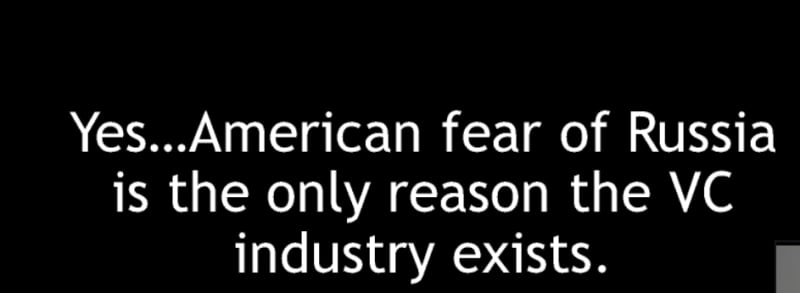



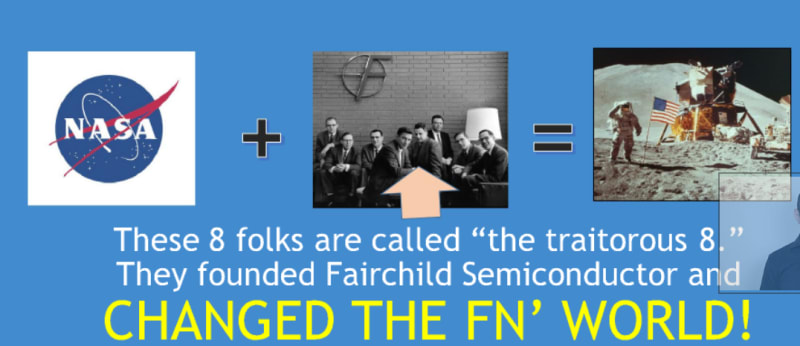
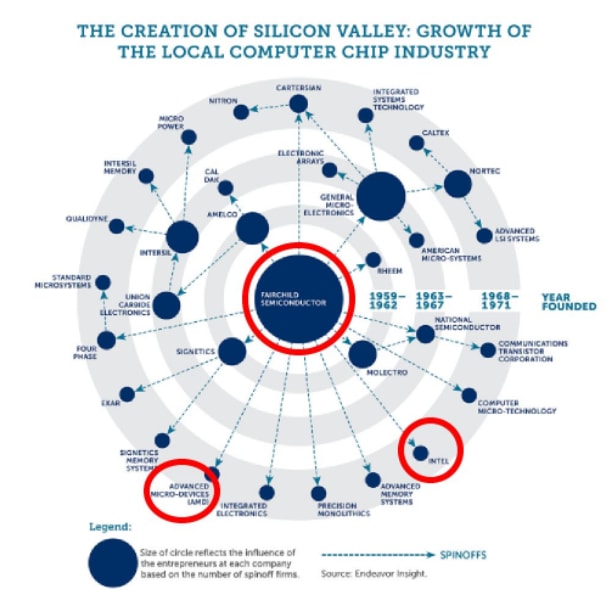
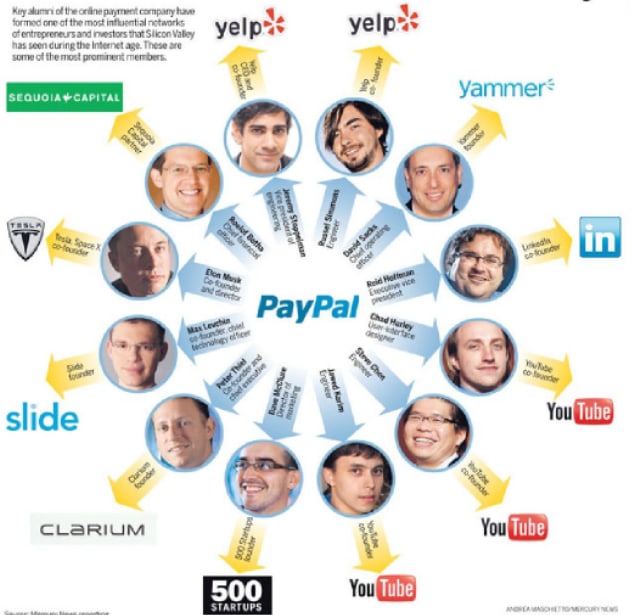
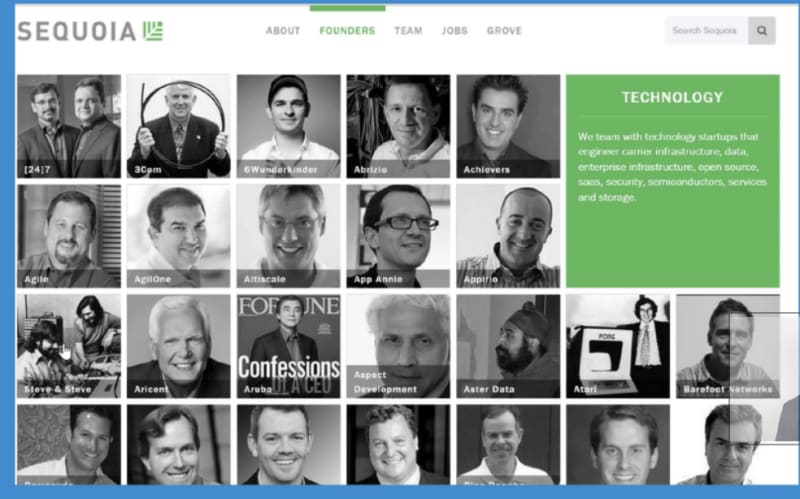
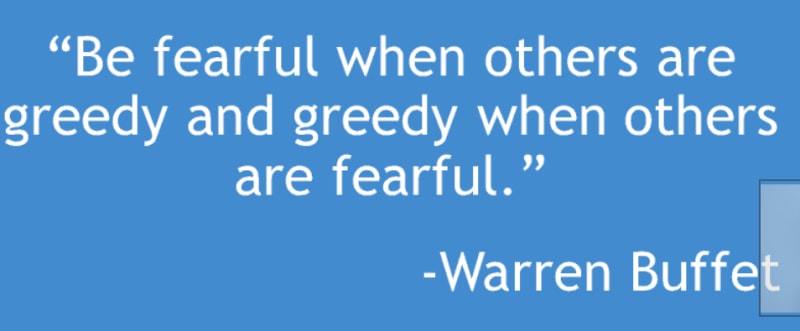
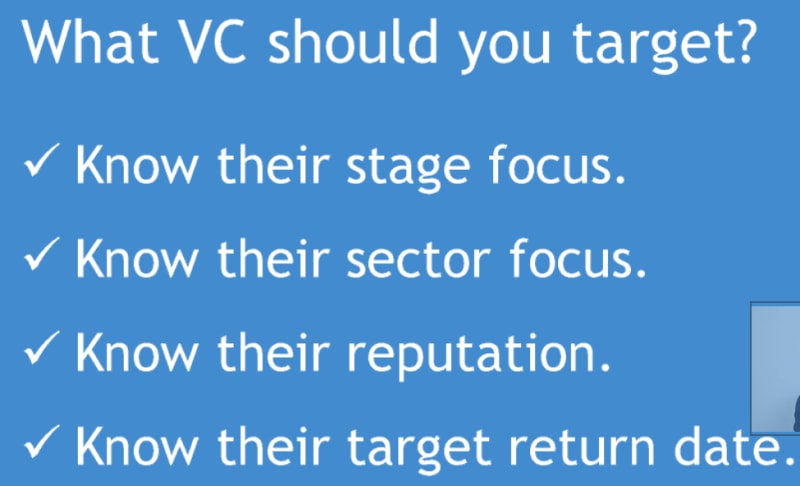
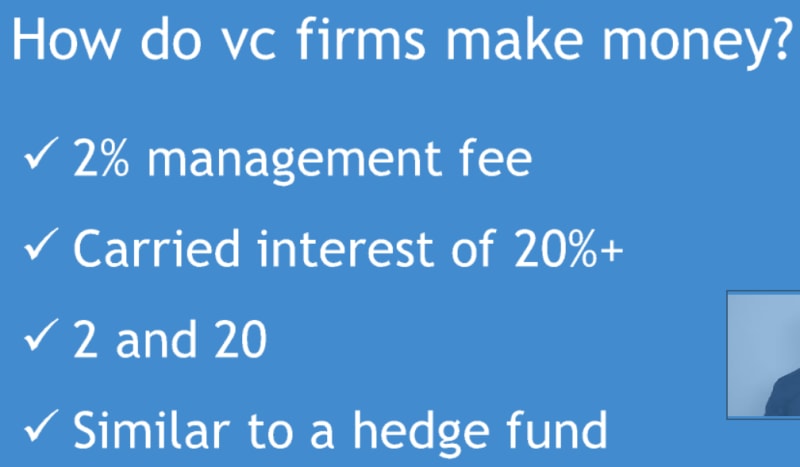
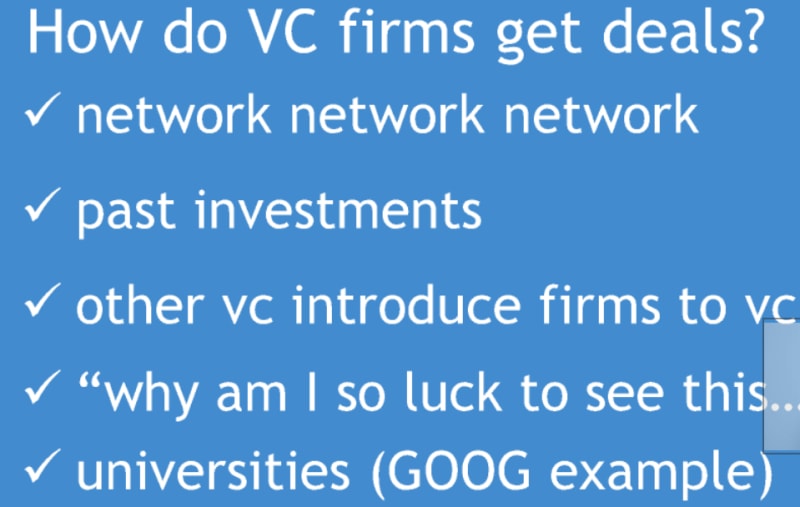

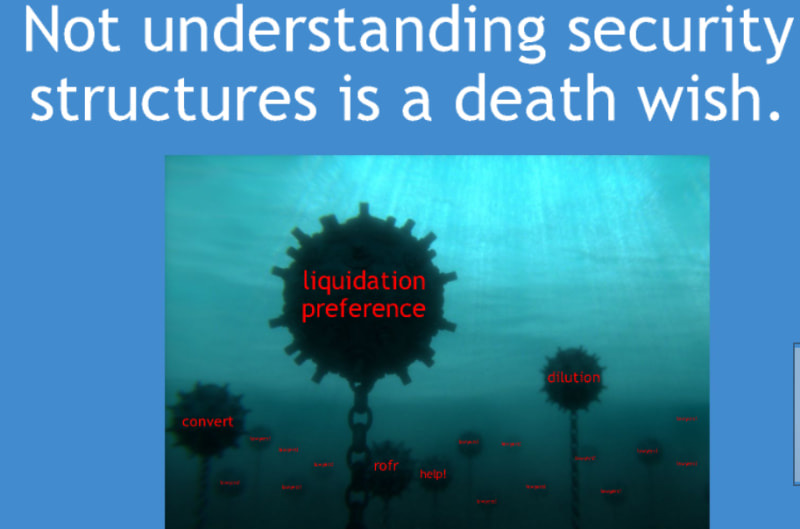
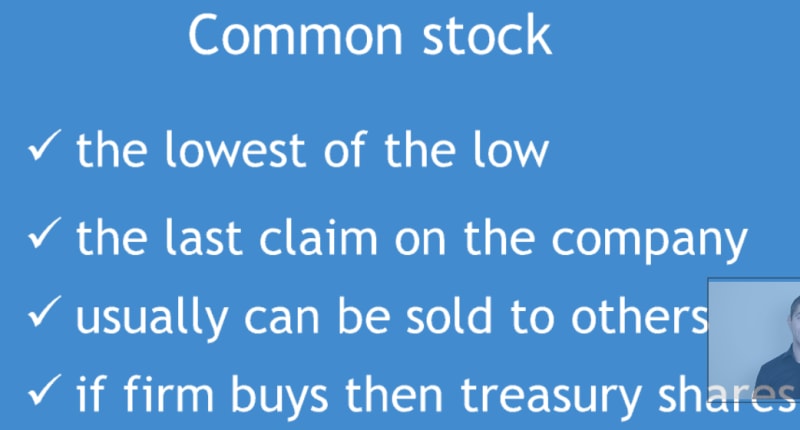
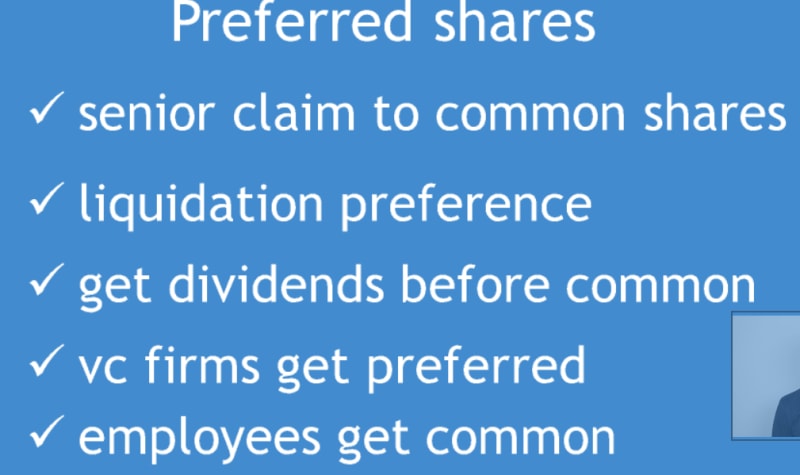
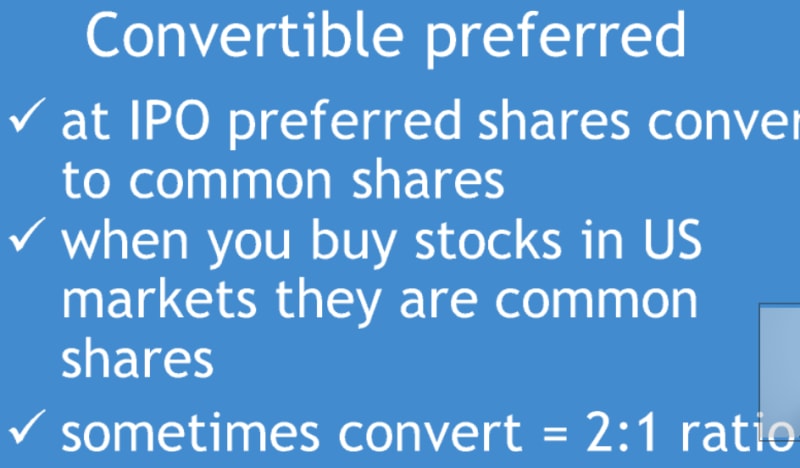
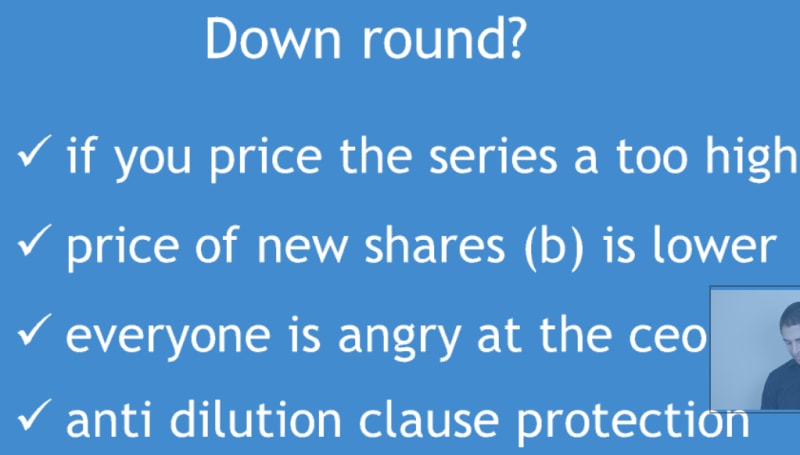

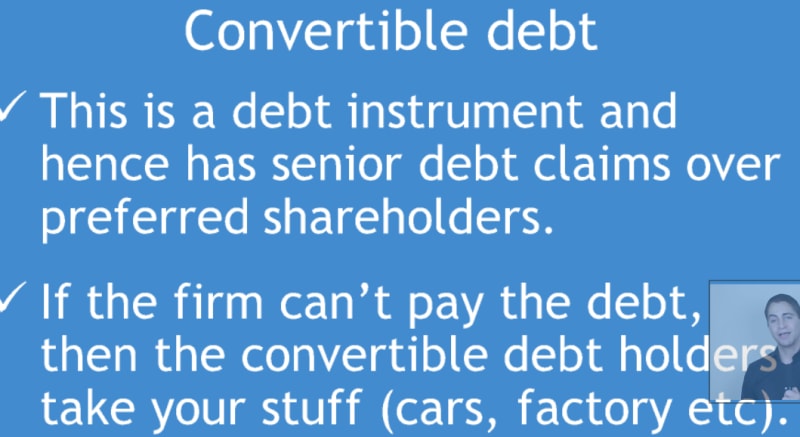
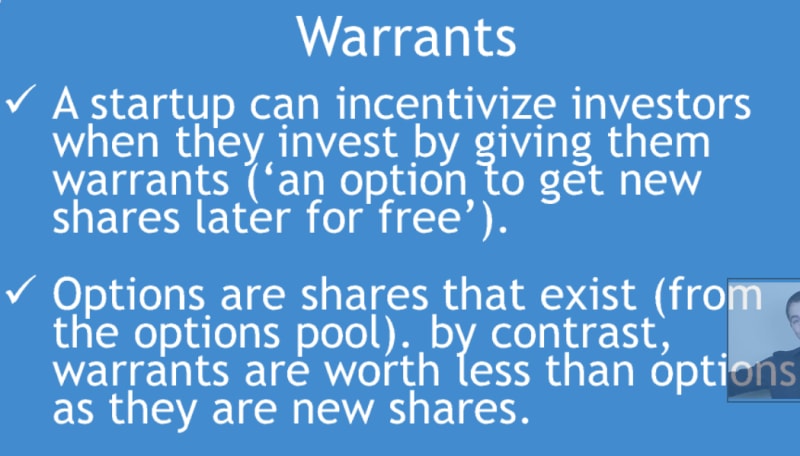




Top comments (0)